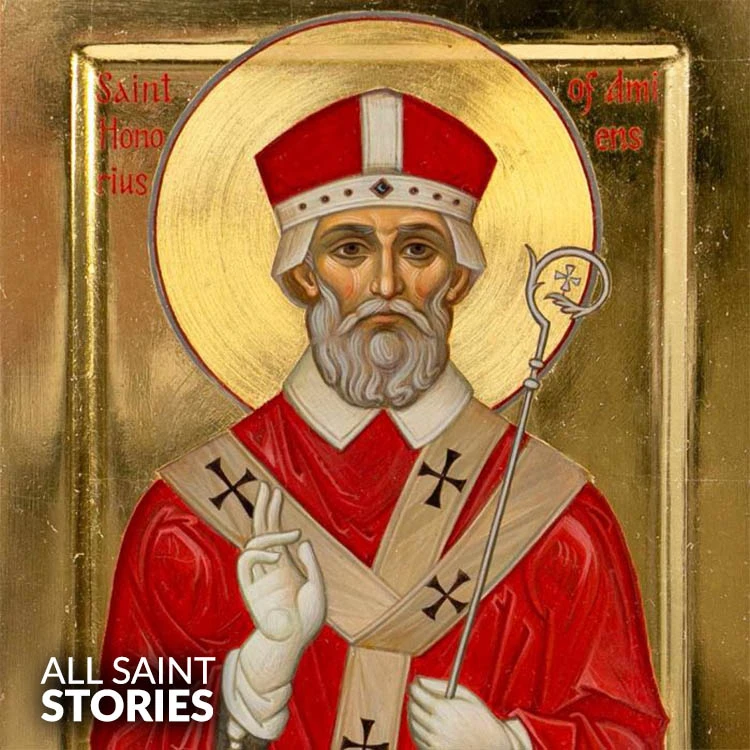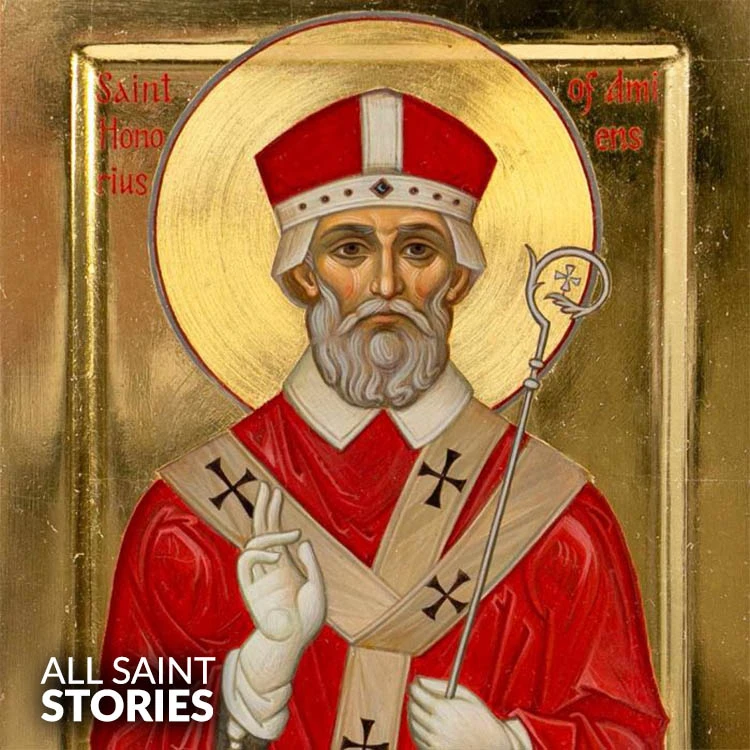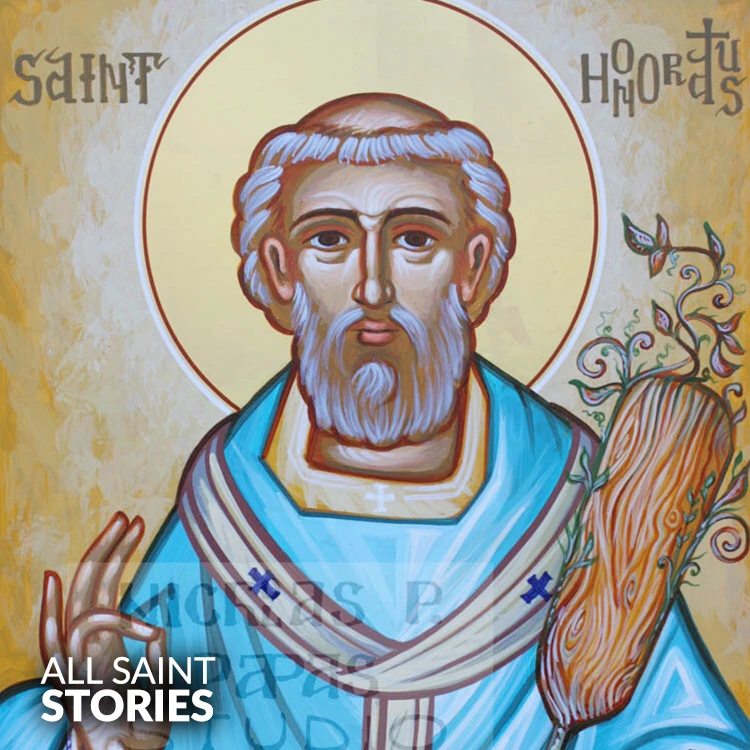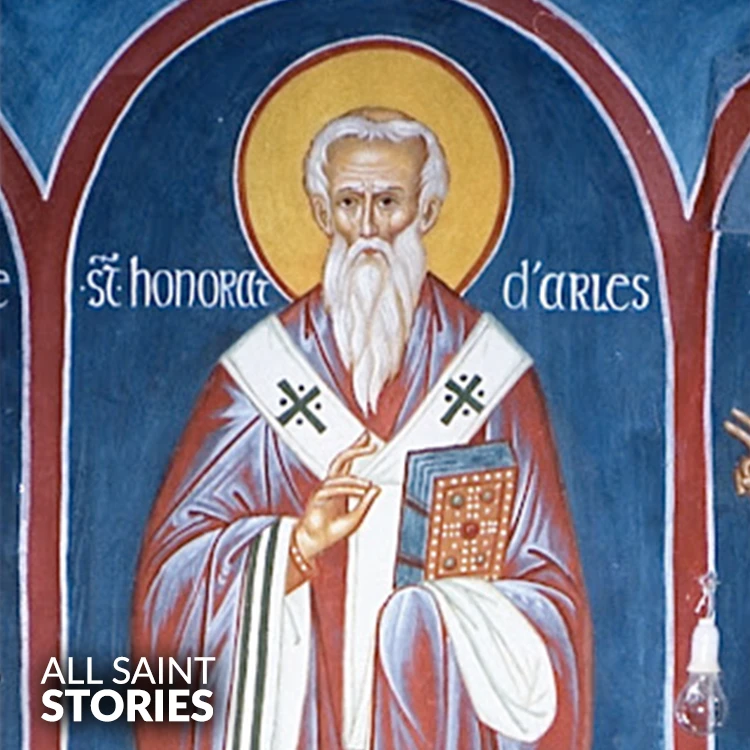Saint Honoratus, faithful servant of God, You devoted your life to prayer and the service of others. Intercede for us, that we may follow your example of humility and compassion. Help us to live with a heart full of charity, and guide us on our journey of faith. May your prayers strengthen us in our trials and lead us closer to the Lord. Amen.
ST. HONORATUS
ST. HONORATUS

Saint Honoratus was a 5th-century bishop of Arles, known for his devotion to the Church and his role in spreading monasticism in southern France. His feast day is celebrated on January 16.
Saint Honoratus was born around the year 350 in what is now the region of Gaul (modern-day France). He came from a noble family, and from a young age, he displayed a deep commitment to his faith. In his early adulthood, Honoratus chose the monastic life, and, influenced by the growing movement of Christian monasticism, he retreated to a life of prayer and solitude in the hills of Lérins, an island off the coast of southern France.
On Lérins Island, Honoratus established a monastery that would become an important center for spiritual growth and learning. The community on Lérins, under Honoratus's leadership, was dedicated to a life of prayer, meditation, and asceticism. It became a beacon of faith for those seeking to live a deeper Christian life. The monastery attracted many followers, including several future bishops and abbots, and it played a key role in the spread of monasticism throughout France and beyond.
Honoratus’s reputation for holiness and wisdom reached far and wide, and in the early 5th century, he was appointed as the Bishop of Arles, a position he did not seek but accepted with humility. As bishop, Honoratus continued his monastic commitments while also overseeing the pastoral needs of his diocese. He worked tirelessly to promote the Christian faith, support the Church, and guide his flock.
Under his leadership, the diocese of Arles flourished, and Honoratus became known for his dedication to justice, compassion, and the care of the poor. He was also instrumental in promoting the Christianization of the region and helping to establish the foundations for future monasteries.
Saint Honoratus's life of prayer, leadership, and service to the Church made a lasting impact on the Christian communities of southern France. He worked to establish a balance between the contemplative life of the monastic tradition and the active life of a bishop. His gentle but firm leadership helped solidify the role of monasticism in the region, and his spiritual influence continued long after his death.
He died on January 16, 429, after serving as bishop for many years. His death was deeply mourned by his community, who regarded him as a great spiritual leader and example of Christian virtue. His feast day, celebrated on January 16, honors his life of devotion to God, his role in spreading monasticism, and his leadership in the early Christian Church.
Video Not Found
The information on this website is compiled from various trusted sources. While we aim for accuracy, some details may be incomplete or contain discrepancies.
If you notice any errors or have additional information about this saint, please use the form on the left to share your suggestions. Your input helps us improve and maintain reliable content for everyone.
All submissions are reviewed carefully, and your personal details will remain confidential. Thank you for contributing to the accuracy and value of this resource.
Credits & Acknowledgments
- Anudina Visudhar (Malayalam) – Life of Saints for Everyday
by Msgr. Thomas Moothedan, M.A., D.D. - Saint Companions for Each Day
by A. J. M. Mausolfe & J. K. Mausolfe - US Catholic (Faith in Real Life) – Informational articles
- Wikipedia – General reference content and images
- Anastpaul.com – Saint images and reflections
- Pravachaka Sabdam (Malayalam) – Saint-related content and insights
We sincerely thank these authors and platforms for their valuable contributions. If we have unintentionally missed any attribution, please notify us, and we will make the correction promptly.
If you have any suggestion about ST. HONORATUS
Your suggestion will help improve the information about this saint. Your details will not be disclosed anywhere.
© 2026 Copyright @ www.allsaintstories.com






 English
English
 Italian
Italian
 French
French
 Spanish
Spanish
 Malayalam
Malayalam
 Russian
Russian
 Korean
Korean
 Sinhala
Sinhala
 Japanese
Japanese
 Arabic
Arabic
 Portuguese
Portuguese
 Bantu
Bantu
 Greek
Greek
 German
German
 Dutch
Dutch
 Filipino
Filipino